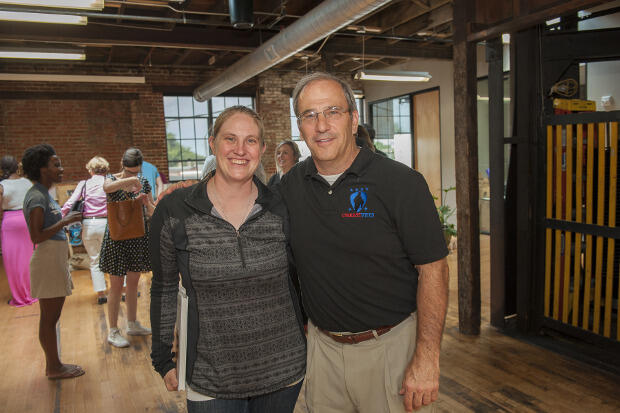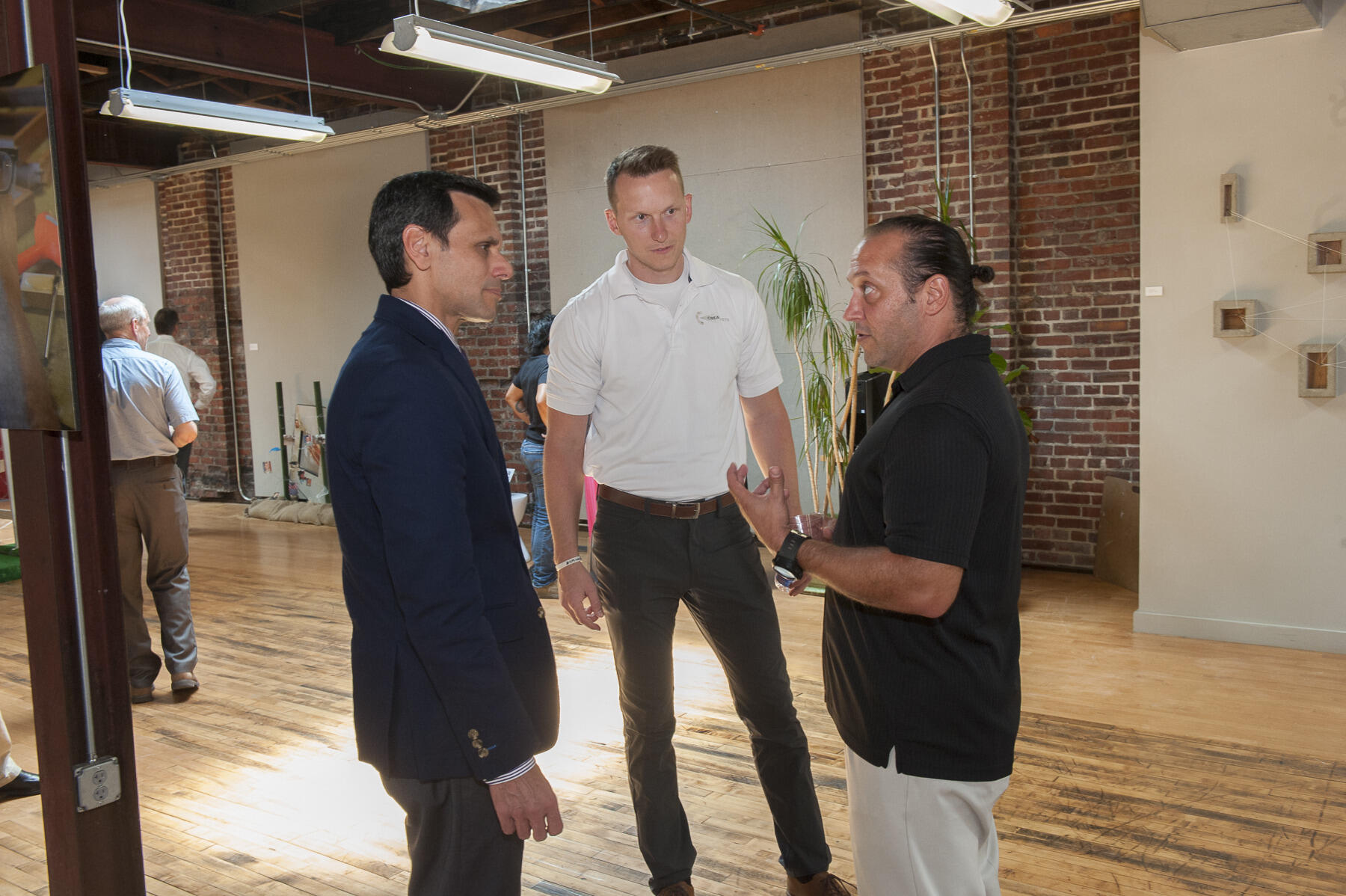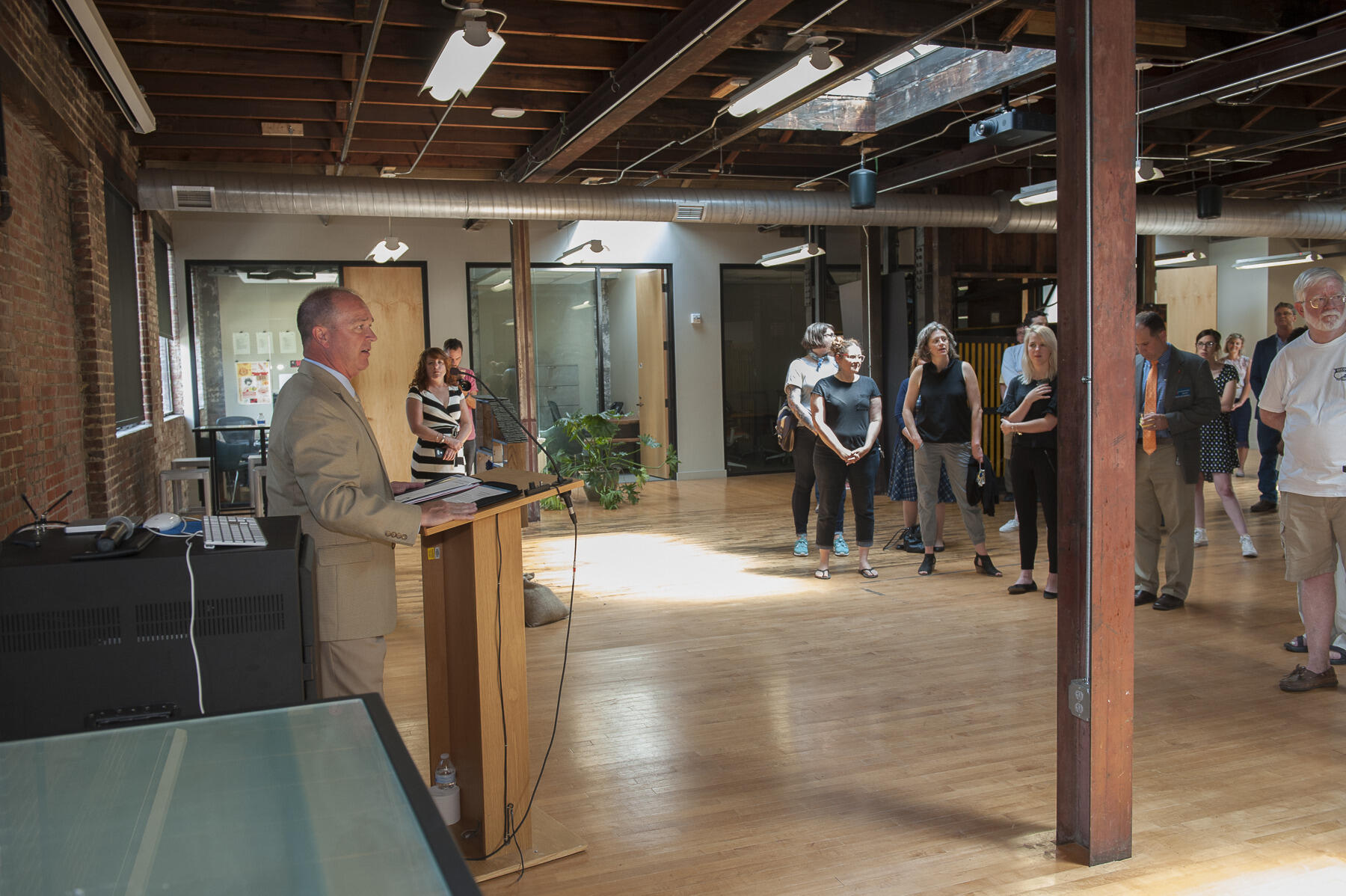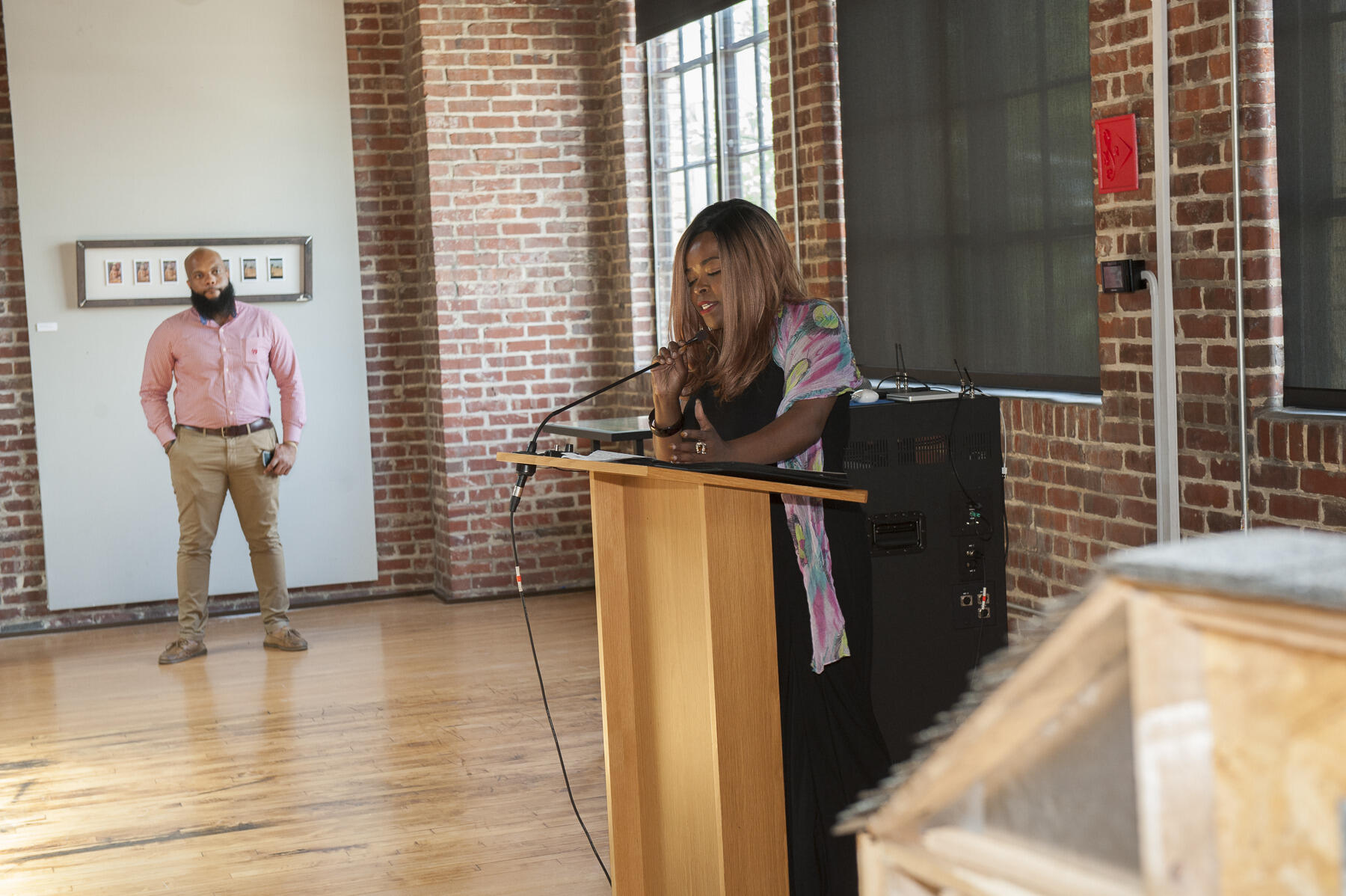
<br>Photos by Thomas Kojcsich, University Marketing
July 7, 2017
Veterans process trauma through camaraderie and art
Share this story
Marine veteran Richard Casper survived four separate IED explosions and suffered a traumatic brain injury while serving in Iraq. When he came home, he struggled to adjust, until he found an outlet through art and music.
It gave me the opportunity to tell my story, without telling my story.
“I remember having one-on-one lessons with my speech therapist,” Casper said. “Because I literally couldn’t speak to the people around me … art and music saved my life. It gave me the opportunity to tell my story, without telling my story.”
Casper is founder of the nonprofit organization CreatiVets, which has collaborated with the VCU School of the Arts and VCU Office of Military Student Services to help men and women whose lives were scarred by war use art to help process their experiences. Eight veterans participated in the partnership’s inaugural course, which took place June 12-30 in Richmond.
The participating veterans all have struggled with post-traumatic stress disorder or traumatic brain injury. During the course they used various art forms such as creative writing, woodworking and digital media to foster self-expression and transform their stories of trauma and struggle.

Casper knows firsthand the importance of processing your trauma.
“We have to get the happiness to outweigh the depression to get them to leave the house,” he said. “They’ll know when they get here, that it’s OK to talk. I know a vet’s life is in danger if the program isn’t top of the line.”
A chance encounter with country songwriter Mark Irwin allowed Casper to experience the healing power of art through music. The two hit it off, and Irwin invited Casper to Nashville to help write a song about his time in Iraq.
“I was able to kind of get over what I was dealing with,” Casper said.
Casper invited another veteran to Nashville, and the pair wrote and recorded a song about the veteran’s trauma. Casper saw the impact the experience had on his friend, and spent the next few years raising funds and bringing more veterans to Nashville. Eventually, he made enough connections to begin the first CreatiVets course at the School of the Art Institute of Chicago, his alma mater.
Working with VCUarts Associate Dean Christina Lindholm, Ph.D., and Stephen Ross, director of Military Student Services, Casper was able to successfully launch the program at VCU this summer.

“Meeting Richard Casper and hearing his story,” Lindholm said, “made me realize how the power of making art can help the people who have given so much in service to this country.”
An Air Force veteran, Ross was instrumental in making VCU, an unfamiliar space for the veterans, into a comfortable environment. Ross made himself available by phone, and hosted a cookout for the participants.
Casper taught the course with VCU alumna Alicia Dietz, a U.S. Army veteran who served as a Black Hawk helicopter test pilot. Today, she is a local artist and woodworking specialist, and couldn’t miss the opportunity to teach veterans a different method to process their service time.
“Working in the abstract allows them to step into themselves,” Dietz said. “People went through some pretty traumatic experiences, but they’re here and finding ways to have art help them.”
The veterans were taught a myriad of art forms, through trial, error and exploration discovering the proper method to tell their unique stories. The course culminated in an art show June 30 at The Depot, featuring works from photography to sculpture.
“Creative expression is more powerful than any stigma,” VCU President Michael Rao, Ph.D., said at the event. “Art gives us the opportunity to connect with who we are. … In all of our souls there is a special, unique talent.”

Marine veteran Robert Aiken, who was shot in the foot during his tour in Iraq, tells the story of his injury through a photography exhibit called “Mr. Foot Goes to Art School.” The collection of photographs is a humorous rumination on his experience. The photos show Aiken’s right foot posing in various locations around Richmond, even wearing glasses across his toes. Aiken understands the healing power humor can have.
“Many of us are dealing with TBI or PTSD. It can be difficult to find a method to work through,” he said. “Approaching trauma with humor is a good gateway to healing.”
Subscribe for free to the VCU News email newsletter at http://newsletter.news.vcu.edu/ and receive a selection of stories, videos, photos, news clips and event listings in your inbox every Monday and Thursday during the academic year and every Thursday during the summer.
Subscribe to VCU News
Subscribe to VCU News at newsletter.vcu.edu and receive a selection of stories, videos, photos, news clips and event listings in your inbox.










